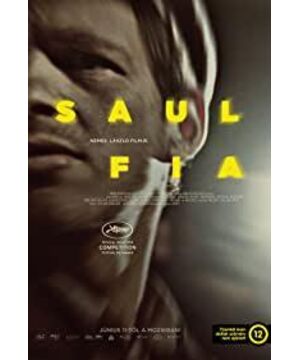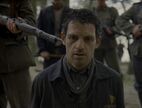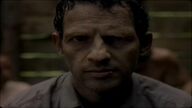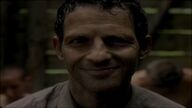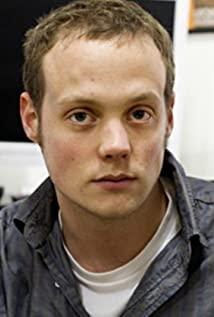Before this, the trailer of this movie used Henry. Purcell’s music "What power art thou? "What power are you? So, what force made Saul face/action/cause this action? There is an act in this movie, and an act in this movie: a Jew found his son in a concentration camp, He decided to hold a formal funeral for him. In this way, the story can be explained in two or three sentences. However, the director has already reminded that the formal funeral in the story is the ultimate goal, and this is a form, so this is a film that precedes form ( But what’s interesting is that this form is boldly not completed in the end.) So, back to the above question, what power is it? Its power lies in his form/expression technique. In fact, I think time and space are more moderate in this movie. Point (but of course there is still his historical fable), "Son of Sol" is really asking us: What forces drive us? Why do we suffer? [Fate and History Reappearance] From the beginning of the film, it appears. A proper noun was "Concentration Camp Task Forces". They are generally composed of Jews and are organized as special units by Germany. The focus is on the following sentence: "They worked a few months longer than ordinary prisoners, and then they were killed." This has already been pointed out. After the end, death is the destiny of all existence, but between life and death is suffering. In suffering, the wheel of history is still turning. Then the picture appeared vaguely, and then gradually became clear, remembering the composition of history. Our viewers follow Saul’s perspective. His history is when a lot of wailing gushes out of the gas chamber, and people no longer die as human beings. [Scheduling and video] Usually scene scheduling is the role of the character making a choice and entering the next space observation, but the scary thing is that in this concentration camp, the free will of this movie is just an illusion, the Nazis are just an environment, and Sol is not oppressive To survive is to be disturbed by one's own obsession. Dispatched in the distorted group portrait and hysterical personal behavior. Inside the frame, you can see the fuzzy hell, and outside it is a kind of obliteration, such as corpses, documents, clothes and so on. Long shots and handhelds are both a purpose of constant suffering and anxiety. In the end, Sol’s gaze and the close-up zoomed in, I suddenly read two messages: "He is going to die, he is dead." This face tells history, and the past is about to happen. [Humanity] In fact, seeing that in the end, it is not the problem of the savior (rabbi or god) but the problem of the rescued. At the beginning, Solyi’s assessment of human nature had to bury his son (perhaps referring to a kind of light of human nature). ), and when he was looking for salvation, the plot deduced him to join the prison escape group, an organization that most squarely considers the desires of the group. Later, he thought he had found a rabbi, but he just wanted it from the bottom of human nature. Living people, the last little boy who appears is neither god nor human, but the resurrected Christ after death. Returning to this kind of humanistic power, from suffering to dignity. Although I don't like this style personally, if the whole film is considered to be art, I think it is also good.
View more about Son of Saul reviews


